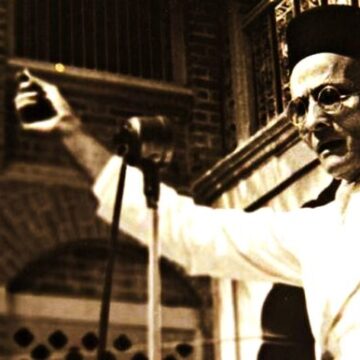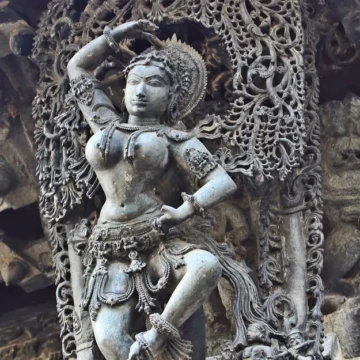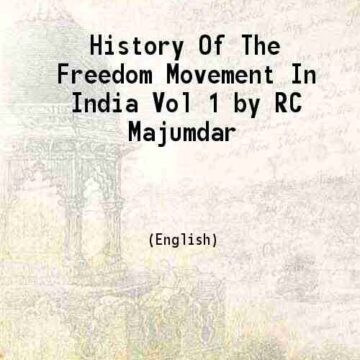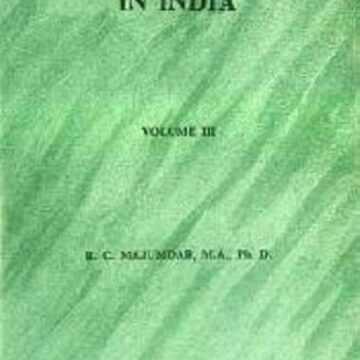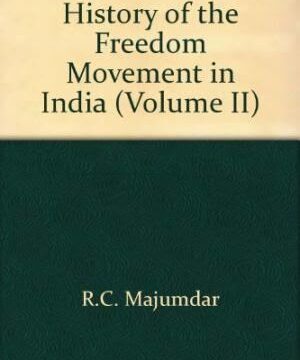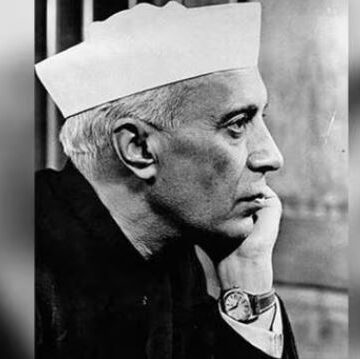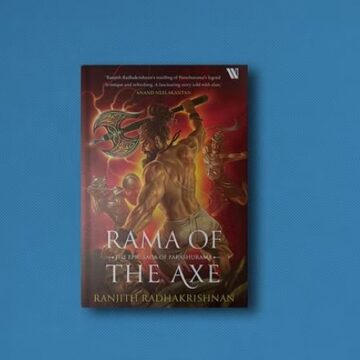Was Vinayak Damodar Savarkar a conservative? Exploring this question, this article by Chandravir Pandey delves into Savarkar's concept of Hindutva, and its alignment with conservative principles. The essay also examines the paradoxes in labeling Savarkar a conservative, given his revolutionary zeal and progressive ideas.
Tag: history
The History and Myths of an Exceptional Hoysala Queen
Shantala Devi, the queen consort to King Vishnuvardhana of the Hoysala dynasty, has been a figure of historical intrigue and literary fascination. This article by Deeksha Tyagi explores the dual narratives surrounding Shantala Devi, contrasting historical records with fictional representations. While the author recognises that fictional potrayals help keep her in public consciousness, she asserts that only by examining both historical and fictional accounts can we gain a more nuanced understanding of her legacy.
Sri Aurobindo: A Broad Overview Of The Greatest Visionary
Dr. Pingali Gopal recaps Sri Aurobindo's life, views and works; and argues that his teachings be an integral part of Indian education.
Excerpts From History Of The Freedom Movement In India By R. C. Mazumdar – Part 7 – The Enduring Myth Of 1942 Quit India Movement, And The Crucial Events Between 1942 To 1947
Dr Pingali Gopal uses R. C. Mazumdar's book "History of the Freedom Movement in India" as reference to evoke interest in the truth behind the popularised version of the history of India's independence.
The last part of the series deals with the Quit India Movement, Subhash Chandra Bose's contribution to the cause, the partition of India and final moments of dotting the i's and crossing the t's before the transfer of power.
Excerpts From History Of The Freedom Movement In India By R. C. Mazumdar – The Ruthless English: Attitudes, Second World War, Churchill, and Mountbatten – Part 4
Dr Pingali Gopal uses R. C. Mazumdar's book "History of the Freedom Movement in India" as reference to evoke interest in the truth behind the popularised version of the history of India's independence.
Part 4 deals with the naked reality of the Raj in India - the avarice, the ruthlessness, and the cunning of the British in bleeding India dry; and ultimately their reluctance to exit or even to contain the spread of the wildfire that was religious hatred and crimes that ensued.
Excerpts From History Of The Freedom Movement In India By R. C. Mazumdar – The Muslim Politics – Part 3
The point Mazumdar repeatedly makes in his book is that the Muslim leaders were extremely clear on what they wanted. The Hindu leaders remained clouded and romantic, dreaming of a unity not simply existing in the minds and hearts of their Islamic counterparts.
The central idea of all the proposed alternatives was that the treatment of Muslims should not be as a minority community in Hindu India but as a separate nation with a distinct culture.
During this great metamorphosis of Muslim politics in India, neither the Congress nor the Hindu public men gave it the serious attention it deserved. They angrily opposed the idea of vivisection of India in any form and took their stand on the twin ideas of Indian nationality and Indian unity—the ideas that the Muslims rejected in almost one voice.
The Hindu leadership never belonged to the Hindus, and the Muslim leadership was devoted to nothing except Muslims and Islam.
Excerpts From History Of The Freedom Movement in India By R.C. Mazumdar – The Politics Of The Book – Part 2
Dr Pingali Gopal explores the goings on that led to the birth of R.C. Mazumdar's book "History of the Freedom Movement in India" as the author tries to bring to light the truth behind India's independence and tries to redefine what "foreign occupation" means.
The rest of this series is a summary and paraphrasing of the works of RC Mazumdar. The essays are directly from the book, without indication as such in all cases. The first-person component of the essays also belongs to Mazumdar. There are no extra elements or comments added to the text of Mazumdar except for some editing and slight additions to give clarity to the background context and to give a smoother flow to the topic under discussion. The aim is to give an overview of the freedom struggle from a different perspective.p
History Of Freedom Movement: The View Of R.C. Mazumdar – Part 1
Dr Pingali Gopal uses R. C. Mazumdar's book "History of the Freedom Movement in India" as reference to evoke interest in the truth behind the popularised version of the history of India's independence.
Nehru and Kashmir: A Relationship with Disruptive Consequences
Were Nehru's myopic decisions solely blunders or were they influenced by his personal friendships with the last British Governor-General Lord Mountbatten and the first CM of J&K Sheikh Abdullah? Jahnavi Naik explores in this article.
“Rama of the Axe” by Ranjith Radhakrishnan – A Review
A comprehensive review of "Rama of the Axe" by Ranjith Radhakrishnan, and his treatment of plots and characters beyond what is mainstream, including but not limited to the protagonist Bhagwan Parashurama and the antagonist Kartyavira Arjuna.

